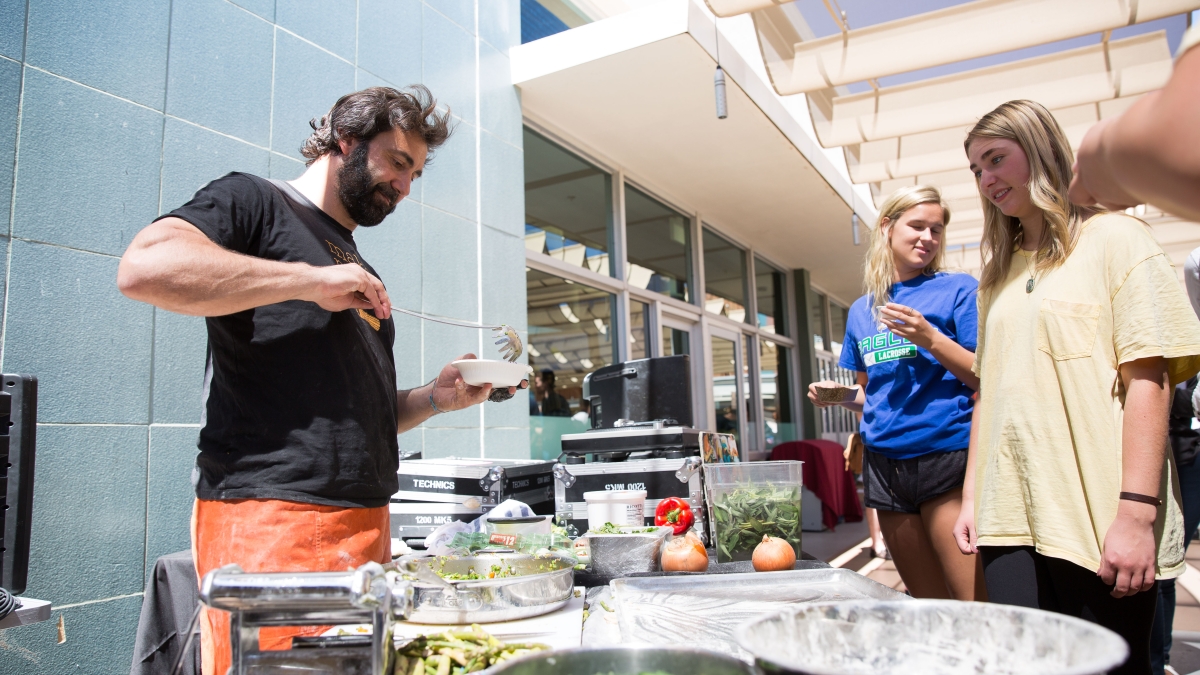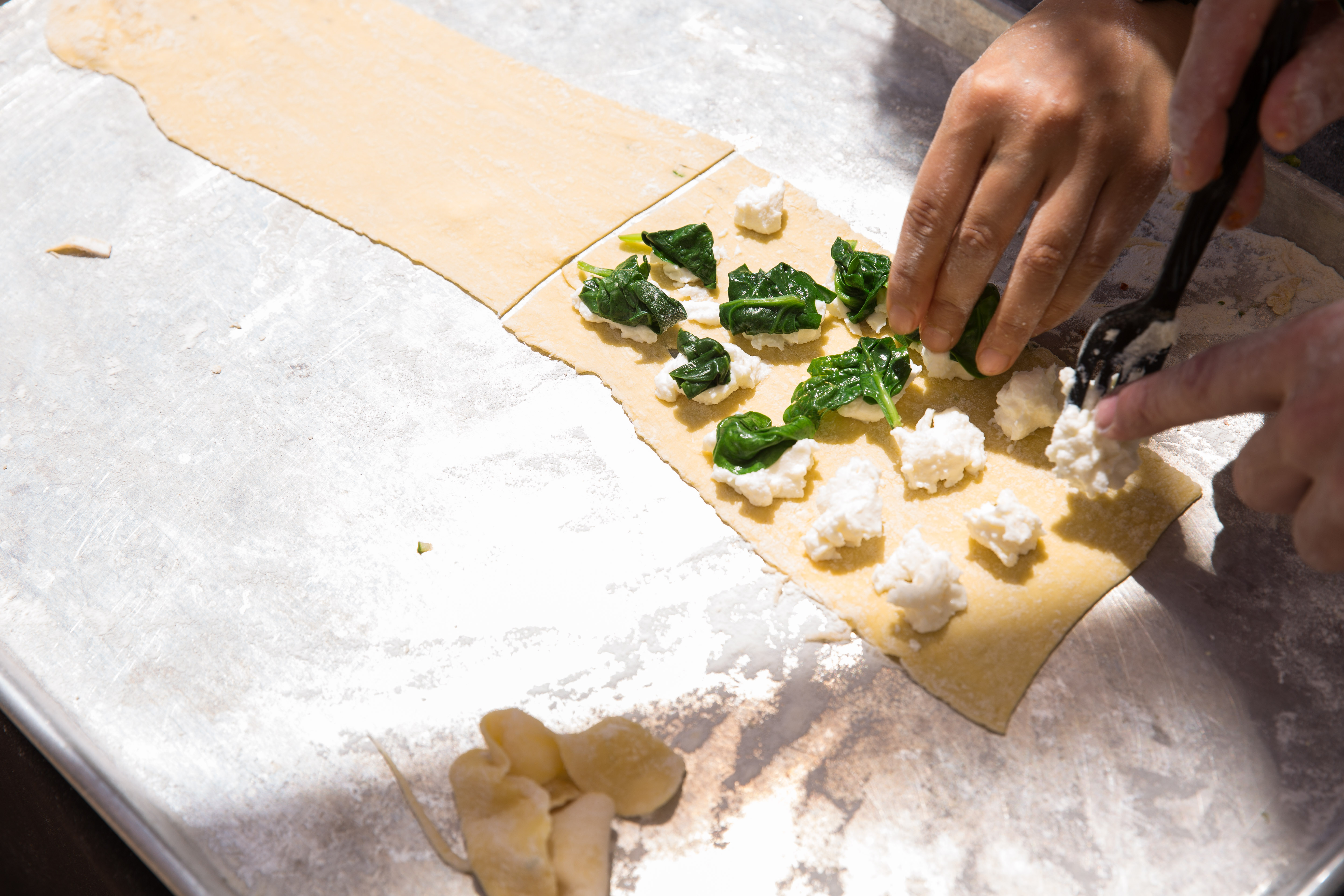An Italian DJ-turned-food activist set up shop outside the Memorial Union on the Arizona State University Tempe campus Thursday, dusting flour from his records as he made pasta from scratch.
While grooving to a Colombian cumbia beat, DJ Donpasta — also known as Daniele De Michele — began by slicing celery and throwing it into a pan to make soffritto, an Italian base used in pasta dishes and as stock.
As the performance continued, students were invited to try plant-based food, including hormone-free chocolate milk, flatbreads and a finish of vegan, gluten-free cheescake during the event coordinated by Aramark, the School of Sustainability, the School of International Letters and Cultures, the Food Systems Transformation Initiative and Herberger Institute Enterprise and Entrepreneurship Programs.
“In sustainability we do a really good job talking about the environmental issues and profit but the people side tends to get left out,” said Sydney Lines, project coordinator for Food Systems Transformation Initiative (FSTI) and a graduate student in the Herberger Institute’s Creative Enterprise and Cultural Leadership program.
For FSTI and the School of Sustainability, the goal of the DJ Donpasta performance was to work with the School of International Letters and Cultures to marry humanities to the subject of sustainable practices.
Video by Deanna Dent/ASU Now
With the help of Italian and Chinese doctoral student Angeline Young, De Michele made the dough for ravioli, dusted it with flour and pushed it through a pasta machine as the crowd looked on. With each run, the pasta became thinner and more stretched until it was more than five feet long.
De Michele laid out strips of pasta, scooped small dollops of ricotta and spinach onto them before setting a second piece on top. After crimping the edges, both used the ravioli cutter to extract the small pieces of pasta. From start to finish the recipe took no more than twenty minutes, all while Young and De Michele laughed and danced to the music.
“He combines food and the tradition of making food with activism and this idea of sustainability,” Young said. “We often think of food and cooking as something we only do with family members and it’s in the privacy of our own home, but food is inherently performative.”
DJ Donpasta prepared a dish during his performance at the Tempe campus Memorial Union on Thursday. Photo by Deanna Dent/ASU Now
Sustainability sophomore Gerardo Moceri, whose father is an Italian chef in Sedona, was attracted to the event to learn about eating right — and to see the performance.
“In our little Italian restaurant in Sedona, before service, if my dad is making pasta we’ll play music,” said Moceri. “You got to cook with love so I think that’s what he’s doing.”
As for the activist who once studied economics, the role of DJ Donpasta came from years of work. He began the process of interviewing grandmothers, fishermen, farmers and butchers across Italy to document traditional food practices and to better understand what is in danger of being lost to the modern food industry.
“When you start to work with food you start to understand the more important thing is that food is political,” De Michele said. “Food is production in the field, food is the work of the people, food is the health of the child and you can’t think about food if you can’t think of the quality of life of the people.”
Top image: Scenes from the DJ Donpasta performance on the Tempe campus on Thursday, March 30. Video by Deanna Dent/ASU Now
More Environment and sustainability

Rethinking Water West conference explores sustainable solutions
How do you secure a future with clean, affordable water for fast-growing populations in places that are contending with unending drought, rising heat and a lot of outdated water supply infrastructure…
Meet the young students who designed an ocean-cleaning robot
A classroom in the middle of the Sonoran Desert might be the last place you’d expect to find ocean research — but that’s exactly what’s happening at Harvest Preparatory Academy in Yuma, Arizona.…

From ASU to the Amazon: Student bridges communities with solar canoe project
While Elizabeth Swanson Andi’s peers were lining up to collect their diplomas at the fall 2018 graduation ceremony at Arizona State University, she was on a plane headed to the Amazon rainforest in…



